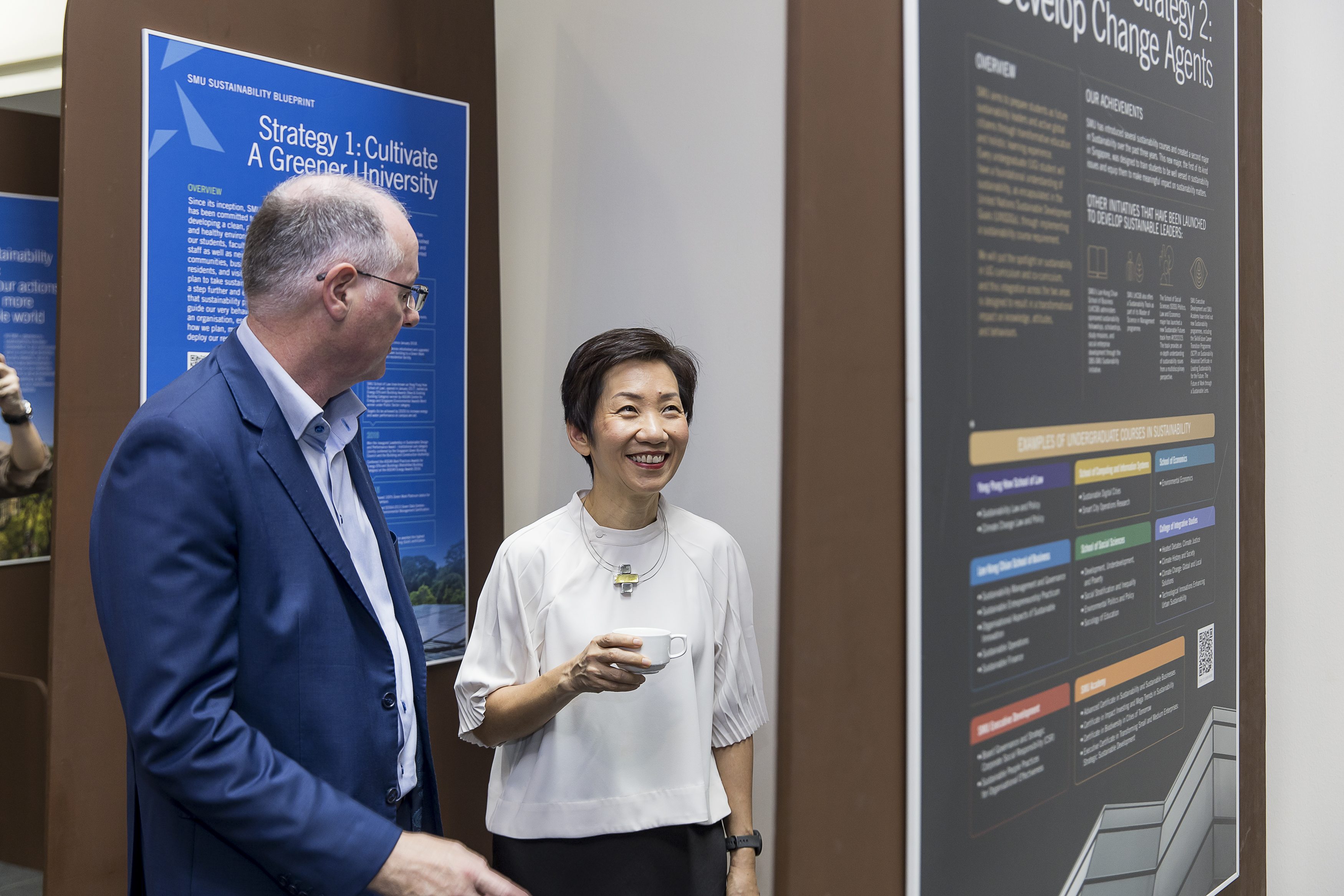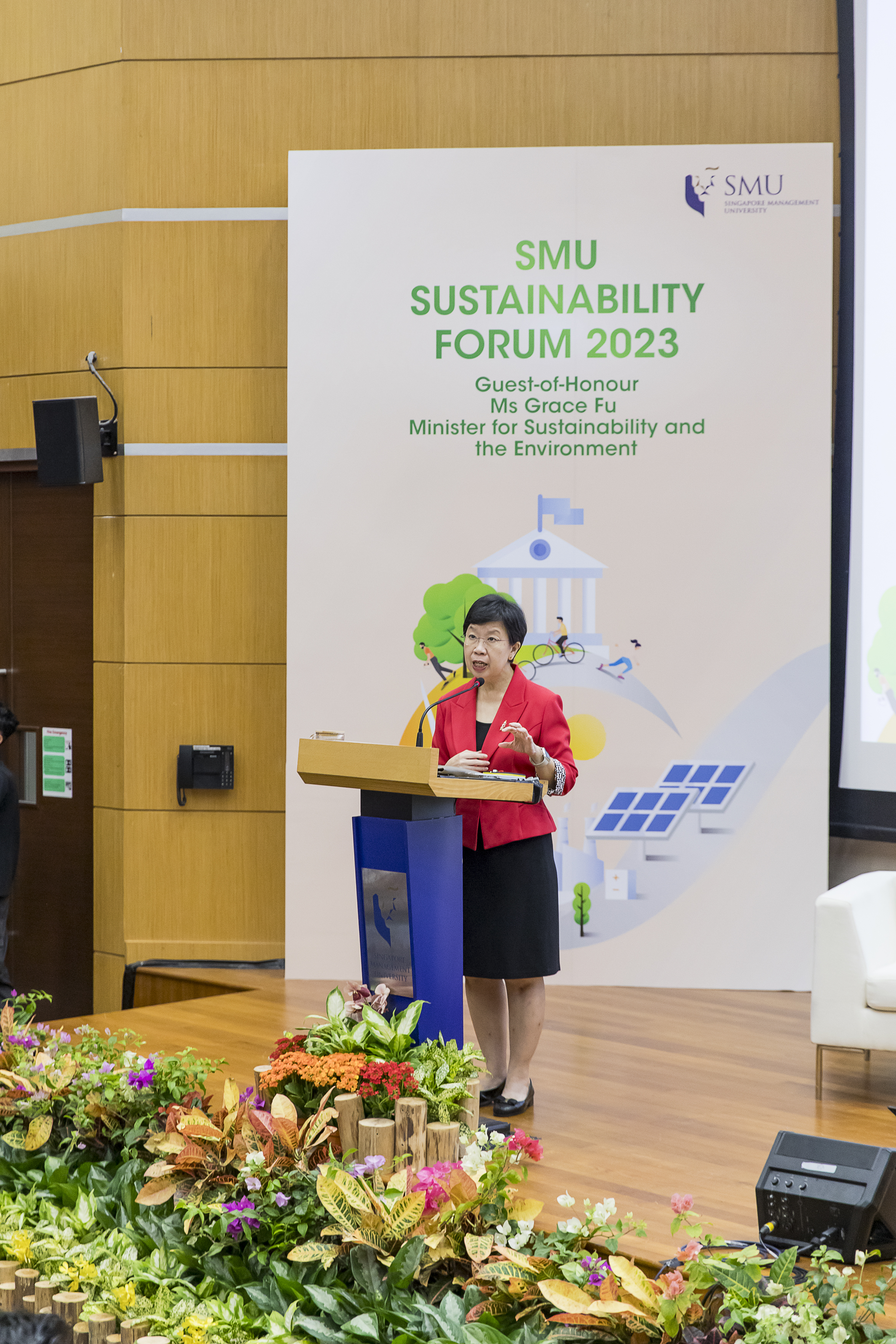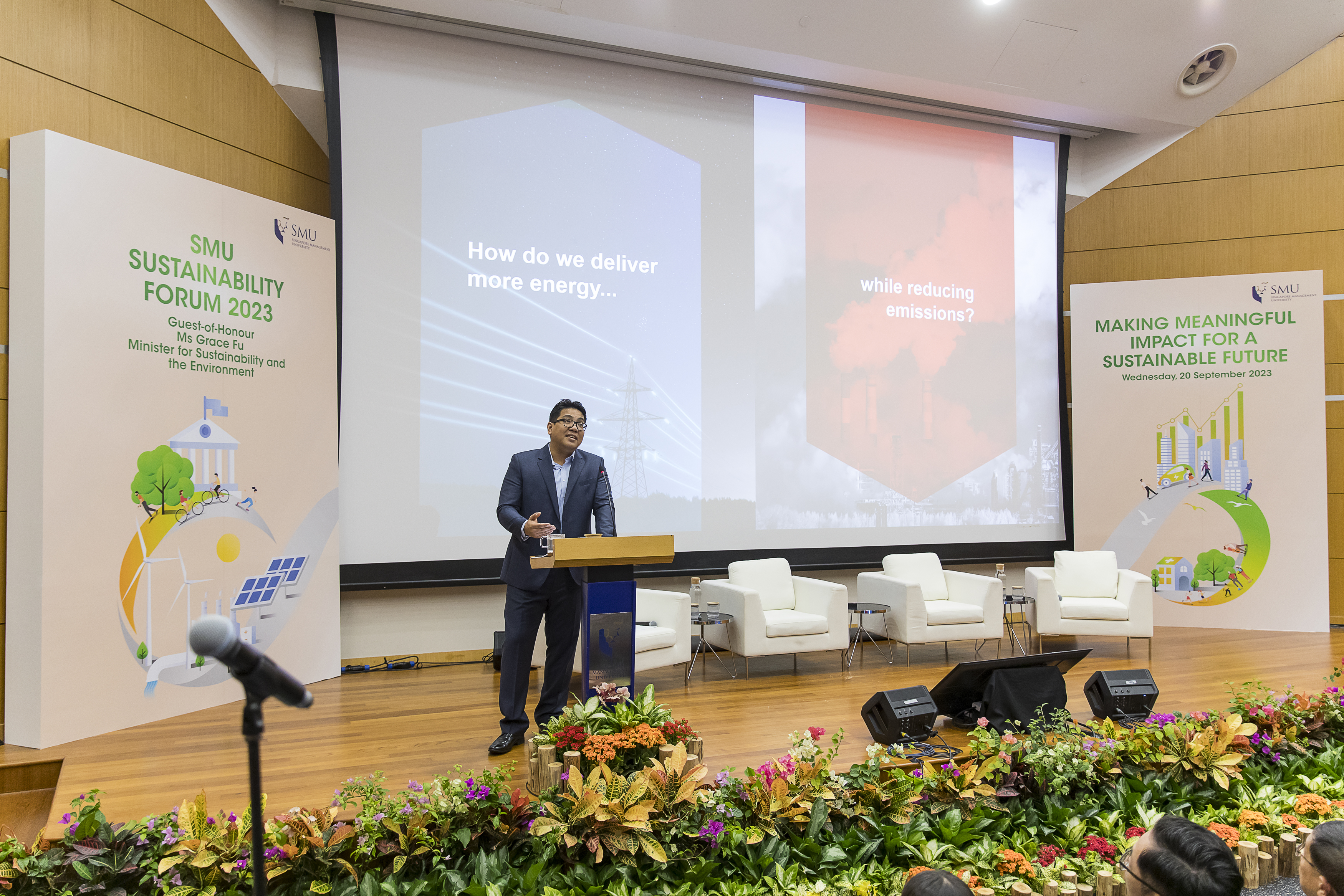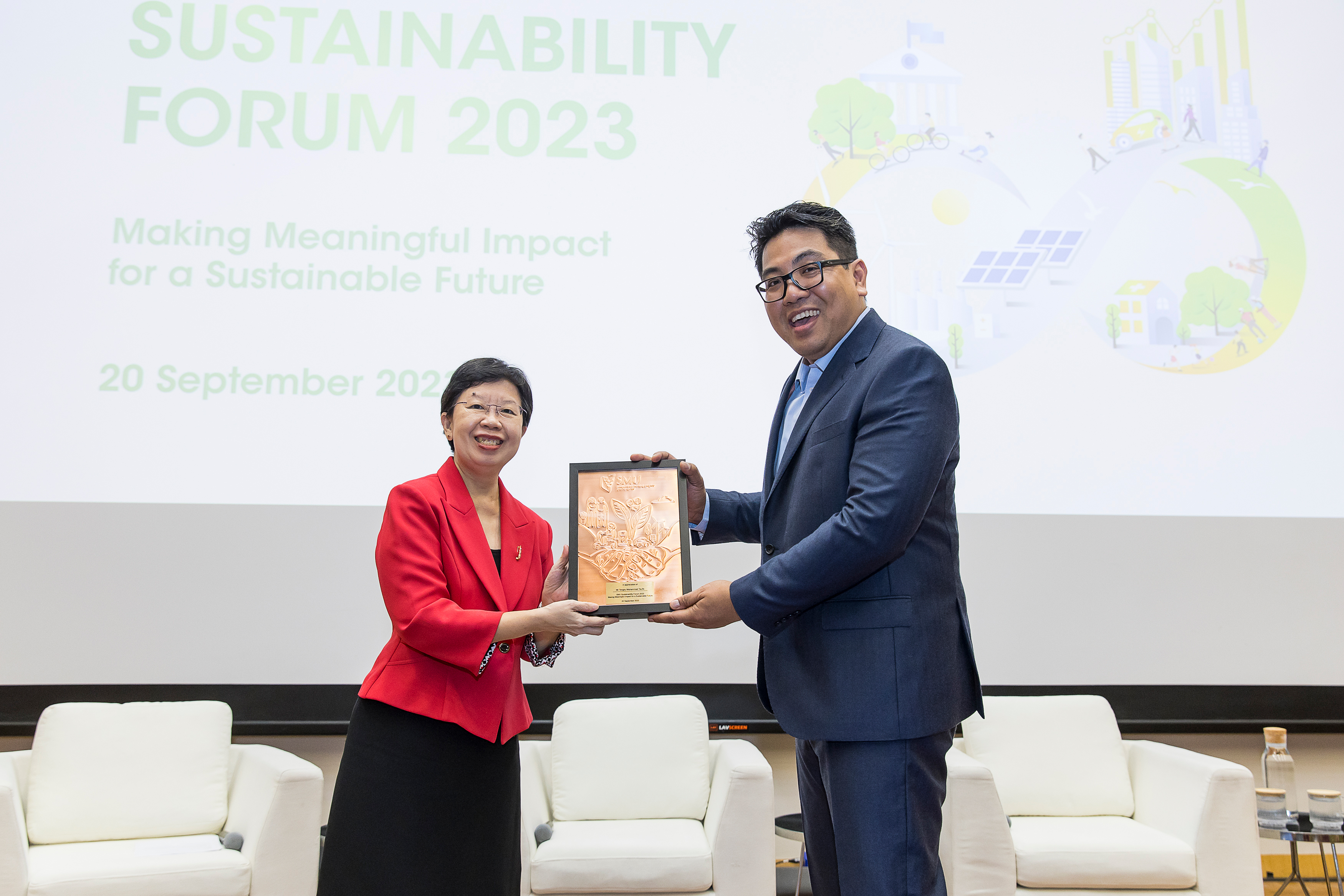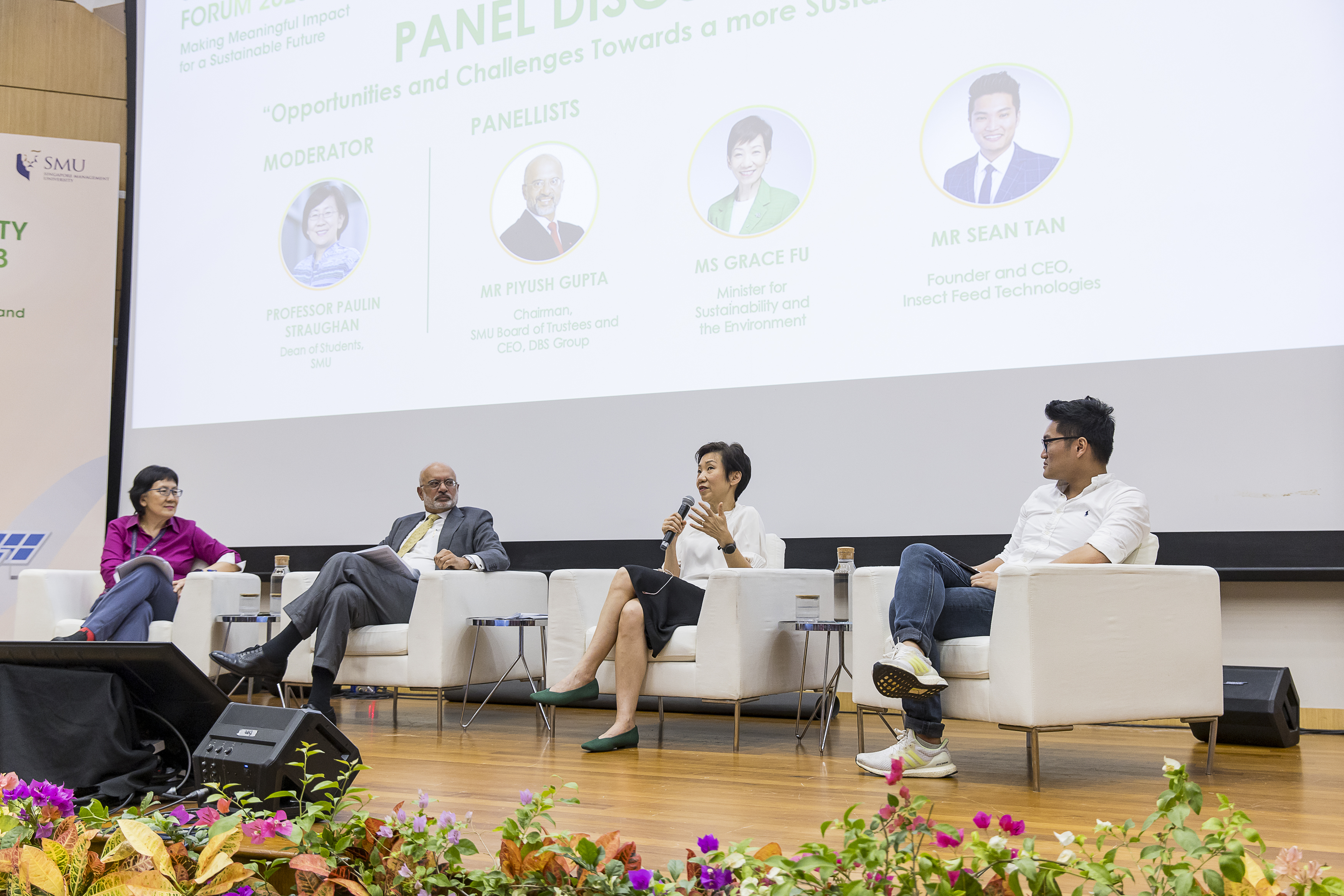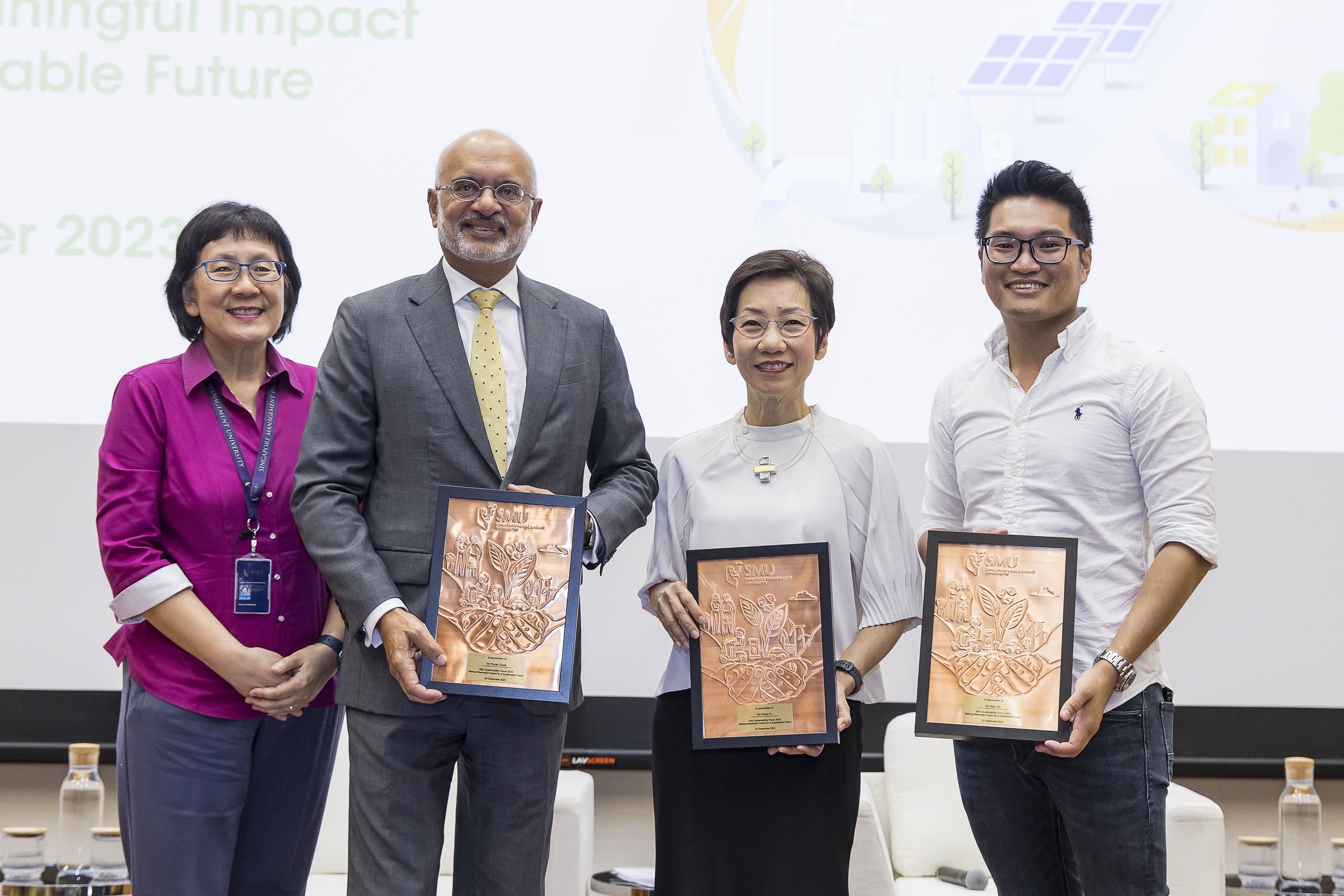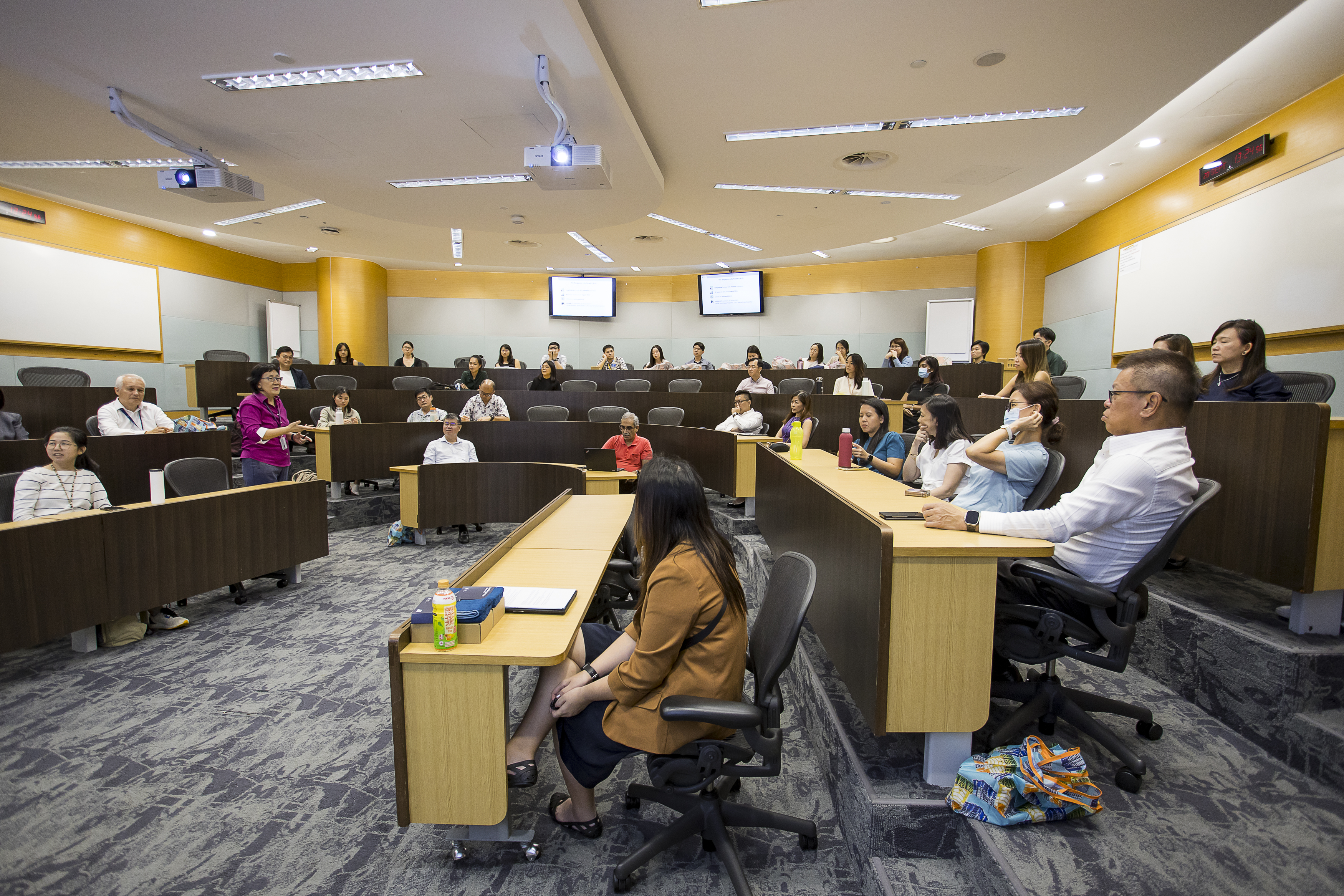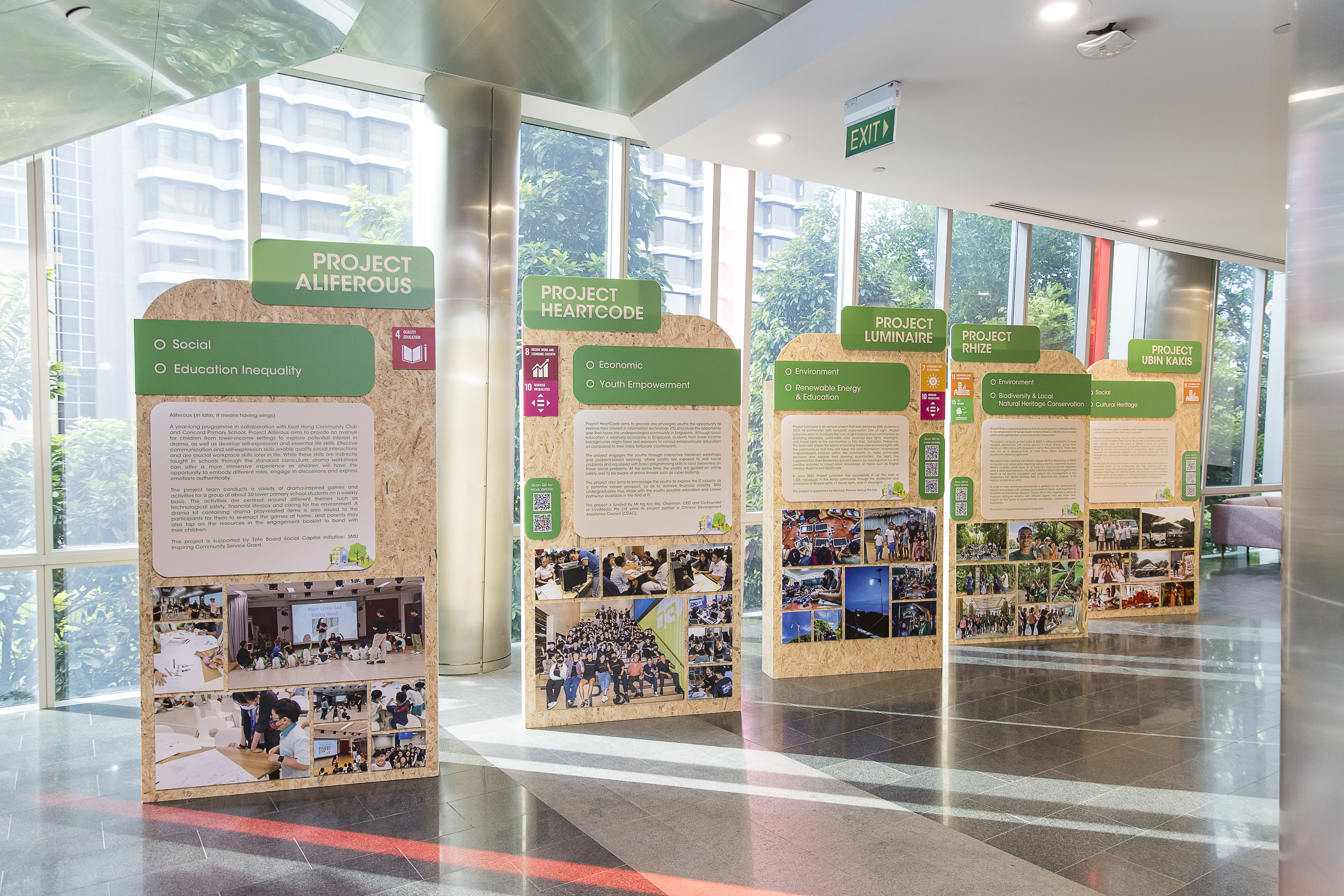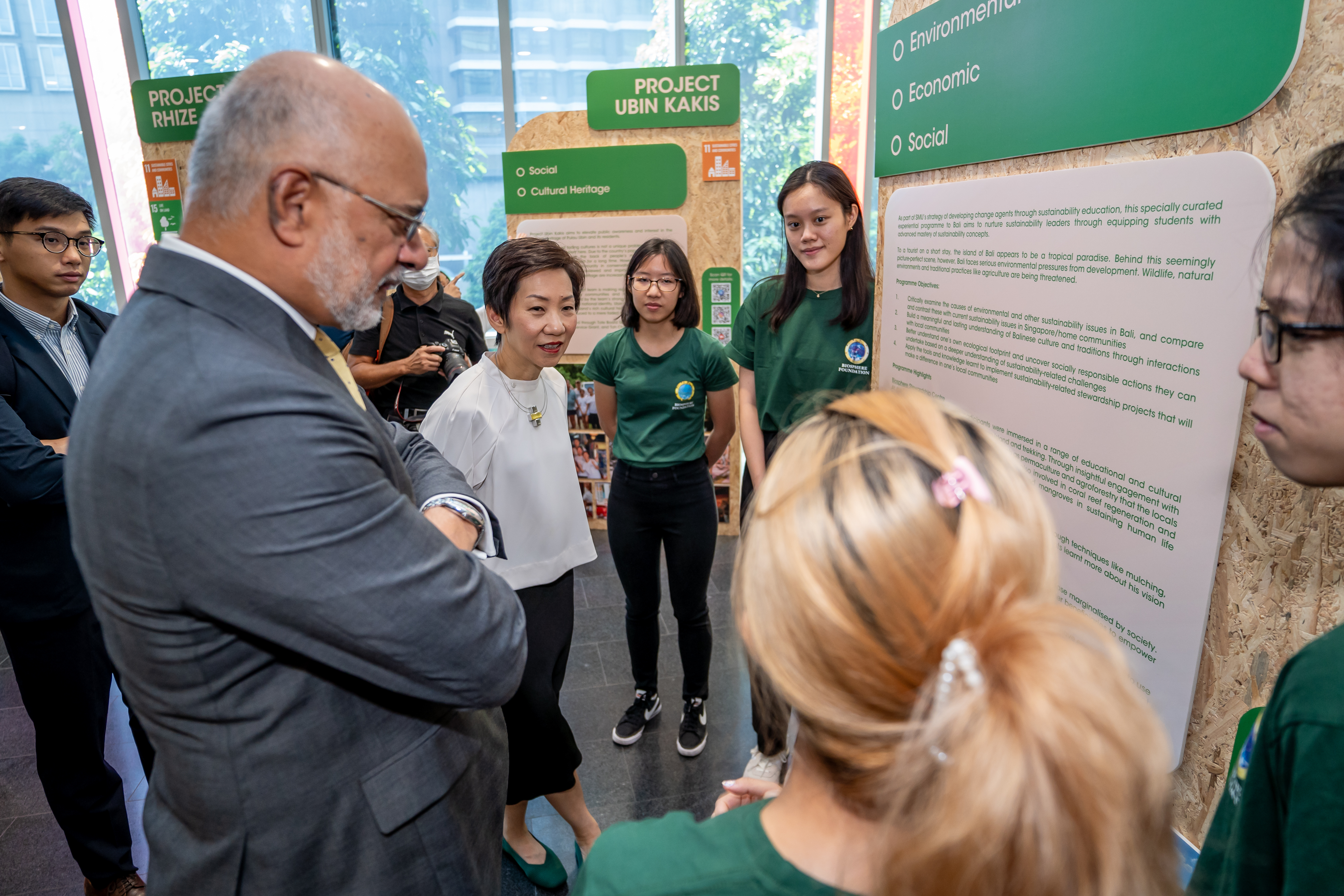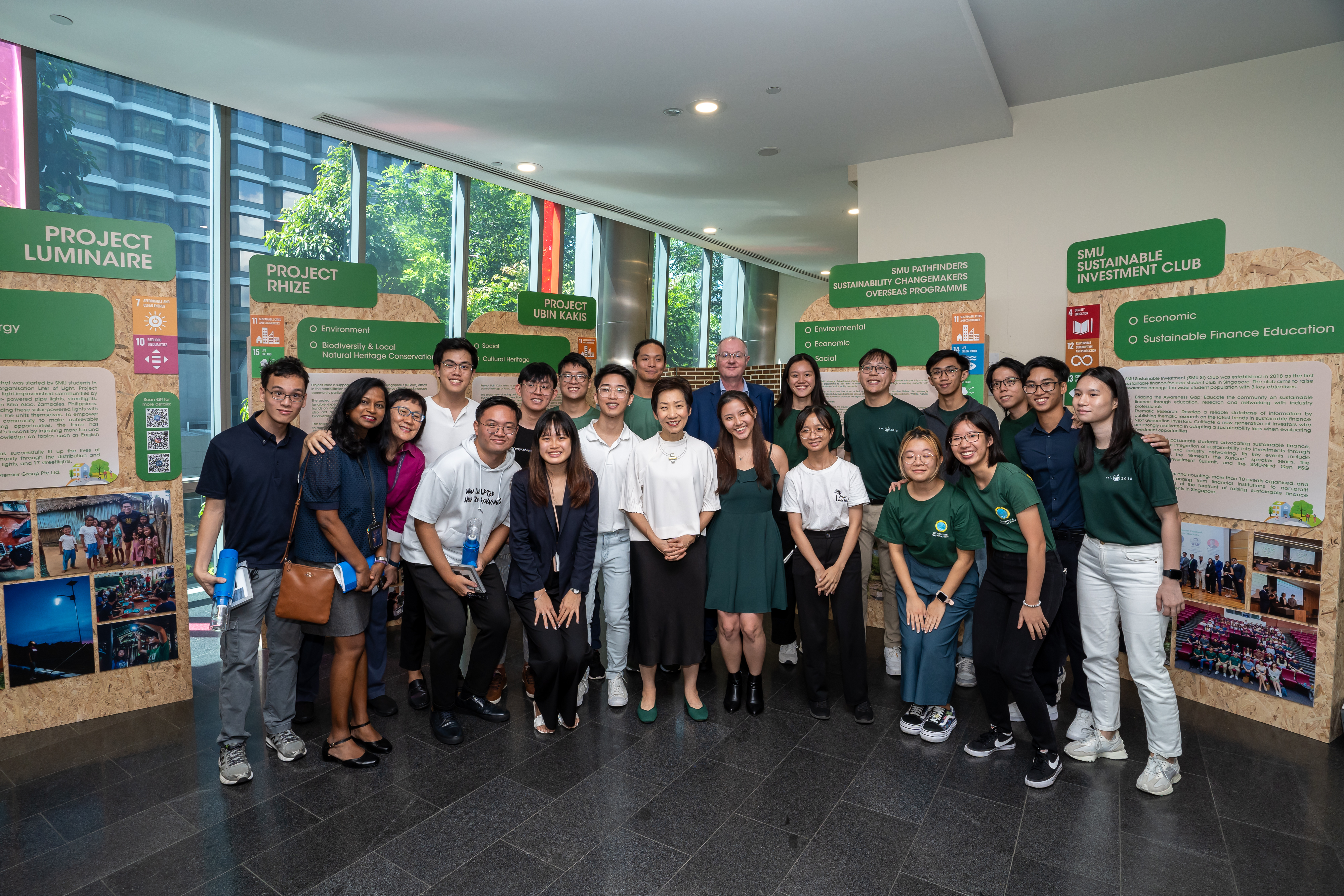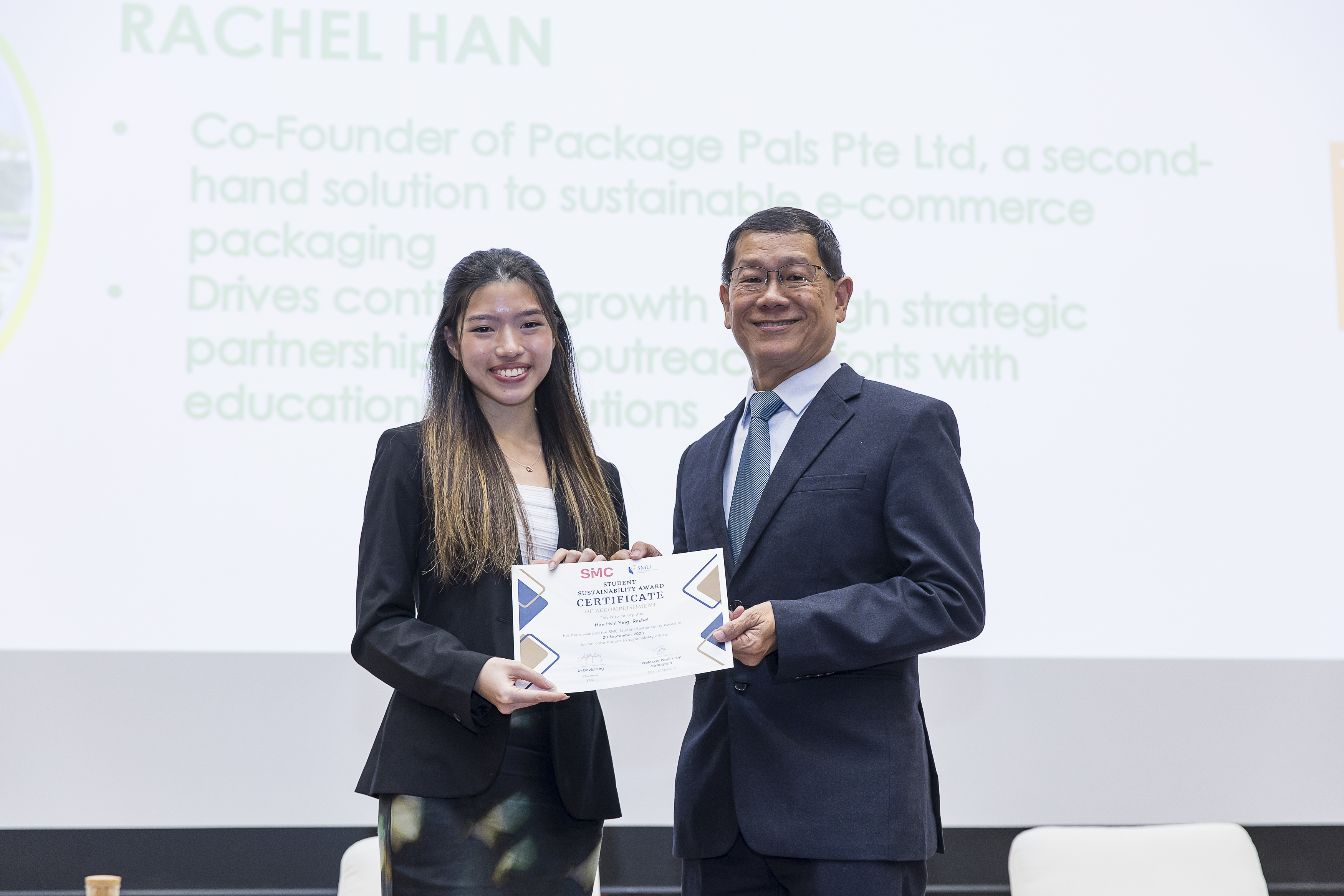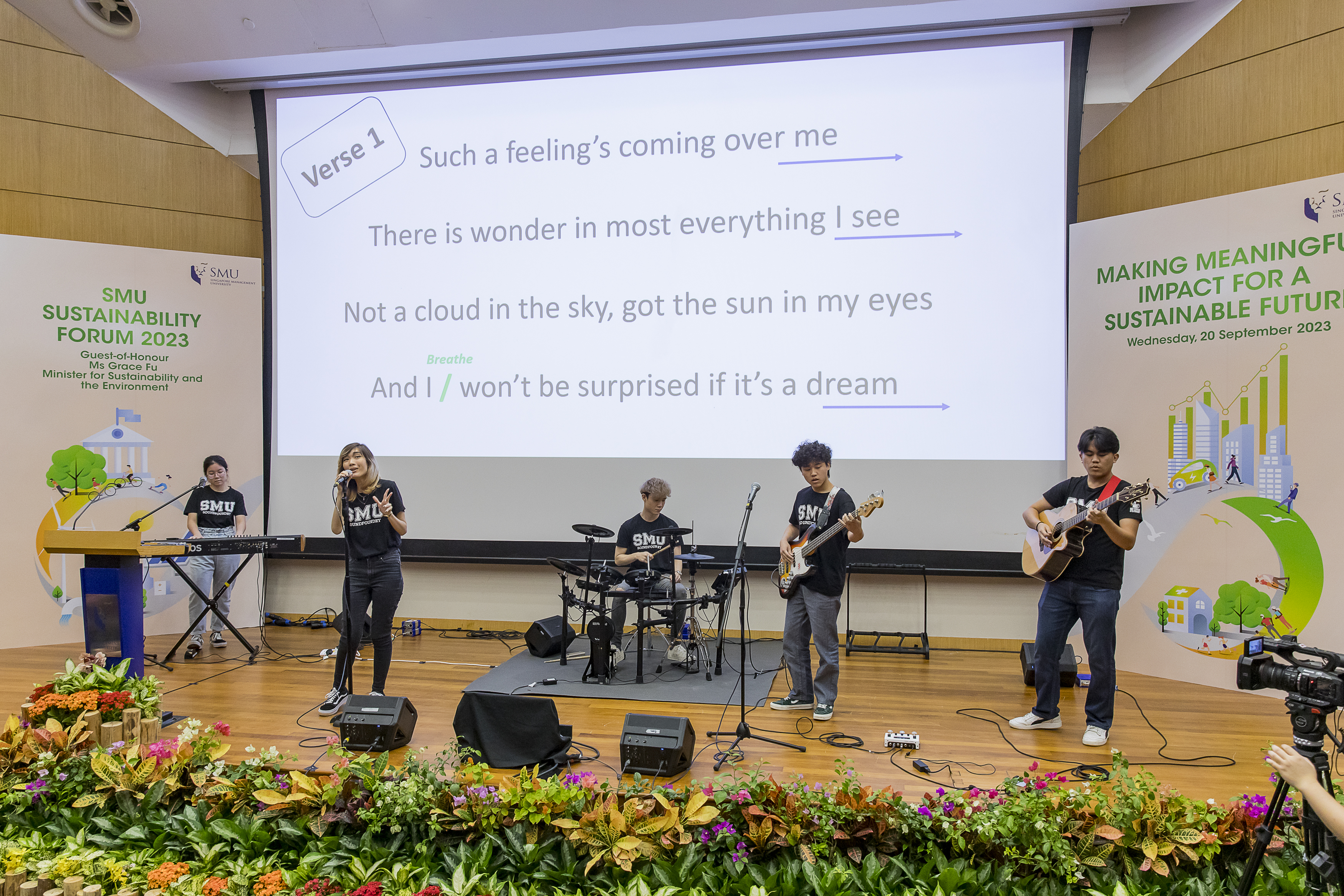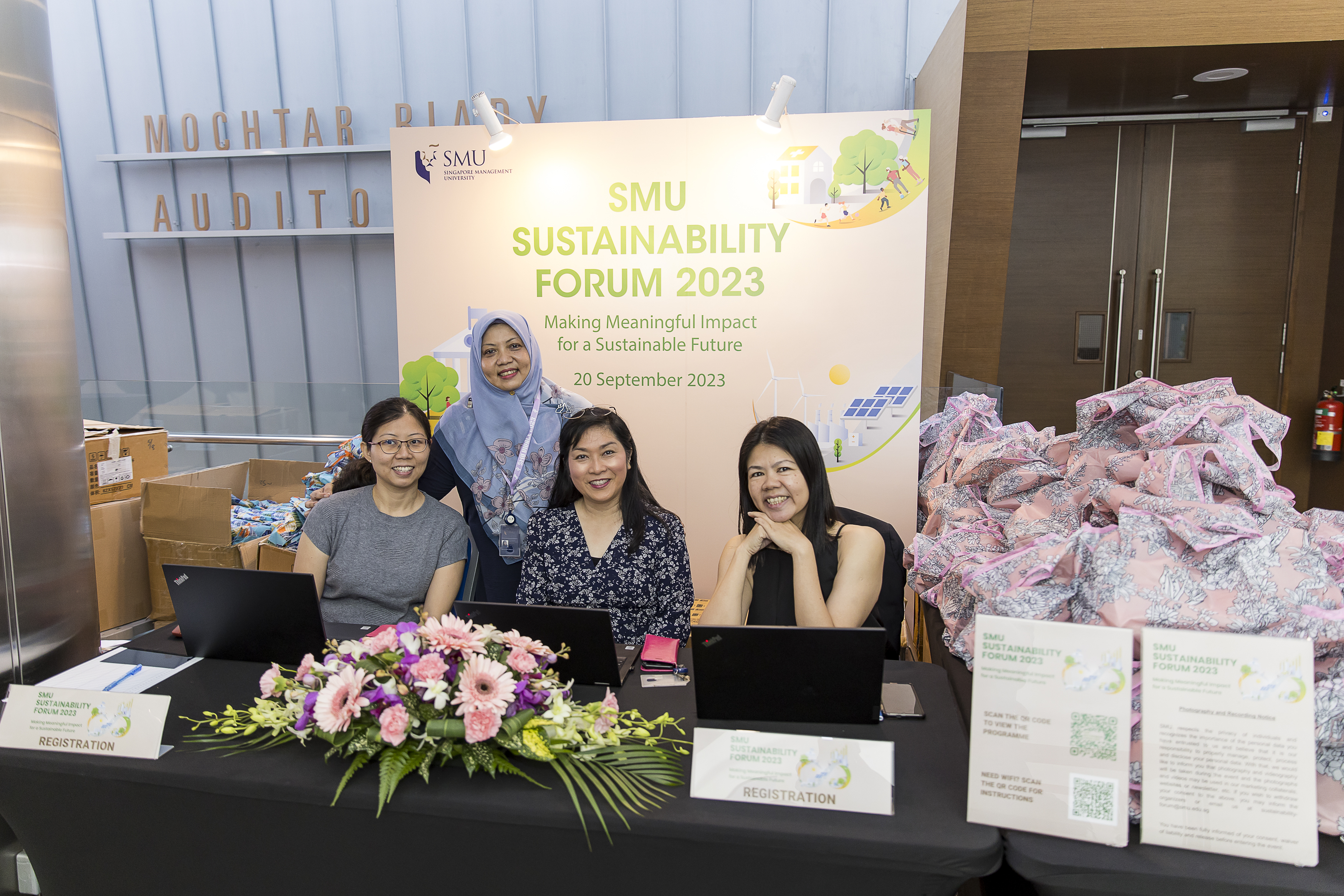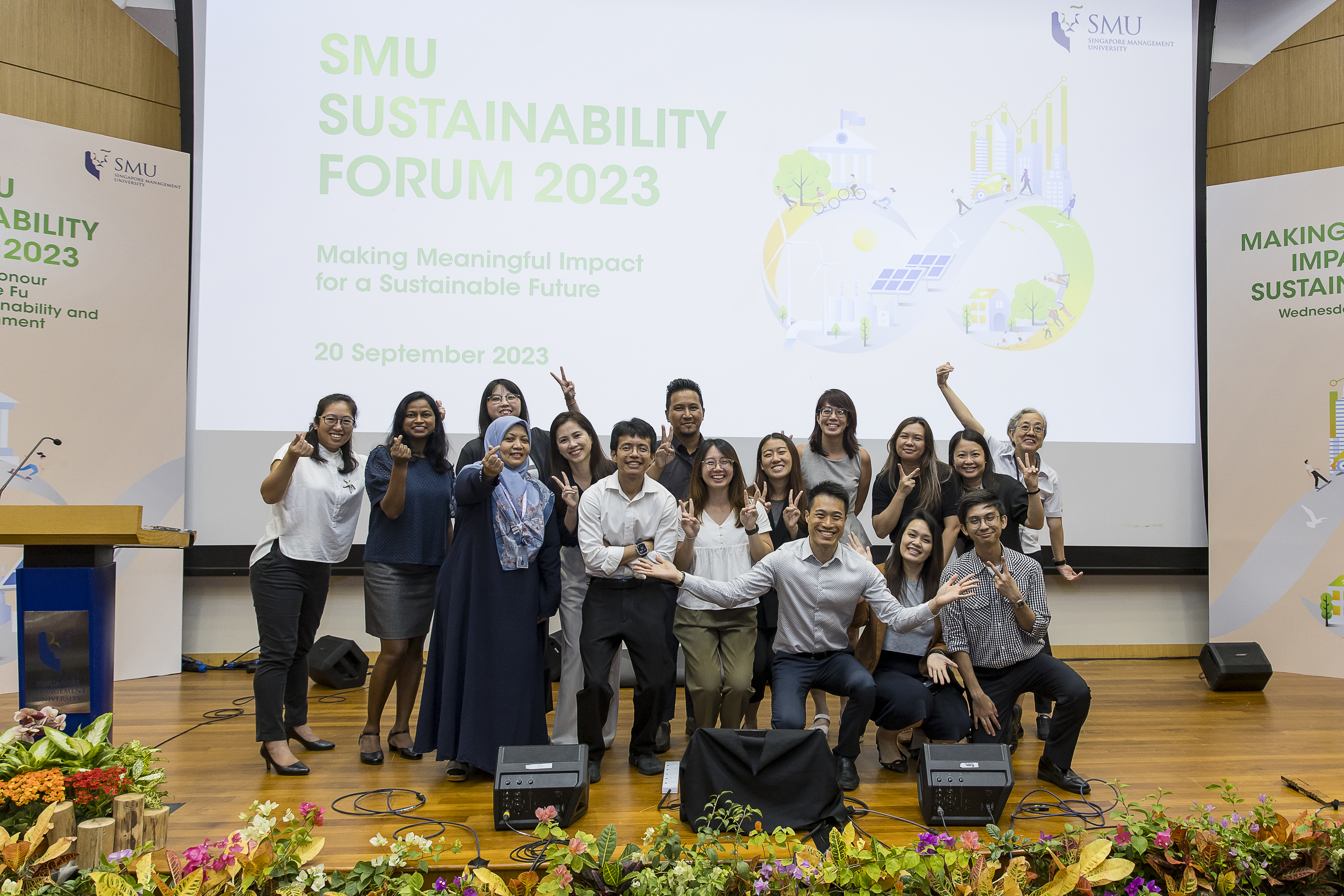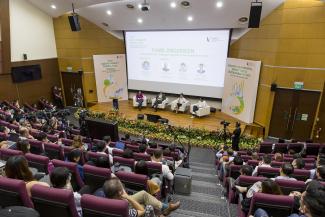
On 20 September 2023, SMU showcased its multi-faceted contributions to economic, social and environmental sustainability at an inaugural Sustainability Forum. Themed Making Meaningful Impact for a Sustainable Future, the event attracted close to 250 participants, comprising students and educators from higher institutes of learning, representatives from social service agencies and non-profit organisations, and business owners.
Minister for Sustainability and the Environment, Ms Grace Fu, was Guest-of-Honour at the event. She lauded the University’s holistic efforts in sustainability and commended SMU students for their active contribution to community-impact projects locally and overseas.
SMU President Professor Lily Kong opened the Forum with reference to UN Secretary General Antonio Guterres’ comment that the world has entered an era of “global boiling’”. Compounded by escalating geopolitical tensions and humanitarian crises, she stressed that urgent action was needed to fast-track the sustainability agenda. She said, “We hope that by showcasing SMU’s sustainability-related efforts in research, education and community engagement, we can create opportunities for knowledge exchange, idea empowerment and forging of synergistic partnerships that can further our shared sustainability agenda.”
Prof Kong also highlighted the University’s strategies in its holistic approach towards Sustainability Living, outlined in the SMU Sustainability Blueprint. The University’s significant achievements thus far include attaining the 100% Green Mark Platinum status for campus infrastructure and the implementation of innovations like food waste management systems. In line with its strategy to Develop Change Agents through Education, SMU will offer a Master of Sustainability (MST) in 2024 and a Second Major in Sustainability Studies, launched on 22 September 2023. The SMU Resilience Framework, launched in 2021, promotes the holistic wellbeing of faculty, staff and students. Guided by a Diversity-Equity-Inclusion (DEI) framework, SMU has also embarked on a range of initiatives to support diversity and inclusivity.
In his Keynote Address, Petronas President and Group CEO Tengku Muhammad Taufik shared Petronas’ efforts to advance the sustainability agenda in the oil and gas industry. Emphasising the need for governments, private entities and countries to work together, Mr Taufik said, “We are at a critical juncture. The planet will not care if we make it or not but how we respond to climate change now will determine what will happen to our species.”
Panel Discussion
The lively panel discussion, Opportunities and Challenges Towards a More Sustainable Future, gave participants insights into the challenges of implementing sustainability solutions and policies amid competing interests and economic realities.
During the session, Minister Grace Fu explained the costs behind securing Singapore’s water supply, including taking into consideration the economic, environmental and social impacts. She said, “The low-income, underprivileged families, the small SMEs (small and medium enterprises), for example, we need to make sure that they are not excluded. Their needs are included in our consideration and then they are helped with that transition as well.”
SMU Chairman Mr Piyush Gupta commented that while change can be brought about quickly by the implementation of government policies, it is in changing human behaviour that new sustainability practices are adopted and embraced, including those in the financial sector. Mr Piyush, who is also CEO of DBS, said that the bank, which is South-east Asia’s largest lender, is helping clients to transition to lower-carbon businesses and reduce the risk of stranded assets.
Founder and CEO of Insect Feed Technologies and SMU alumnus from the Lee Kong Chian School of Business, Mr Sean Tan, shared his journey of developing a viable business model to counter food waste and sustainable protein production through insect farming. His company employs cutting-edge technology to producing black soldier fly protein as an alternative food source for animals and pets.
Breakout Sessions and Sustainability Showcase
Participants also had the opportunity to attend breakout sessions, where members of the SMU community showcased the University’s sustainability efforts in education, research and community engagement. Session topics included research findings on consumer acceptance of cultivated meat, enhancing sustainable ageing and wellness in Singapore, and SMU’s sustainable infrastructure initiatives. Co-curricular programmes aimed at nurturing sustainability student leaders and future change agents were also featured.
Another Forum highlight was a Sustainability Showcase of student-led local and regional community service projects that have contributed to the preservation of cultural heritage, the promotion of social inclusivity, and environmental education and conservation.
The SMC Student Sustainability Award was presented to four recipients at the forum. These awards, supported by the Singapore Mentorship Committee (SMC), recognise efforts of SMU undergraduates who demonstrate contributions across different dimensions of sustainability as defined by the United Nations Sustainable Development Goals.
A heartwarming musical performance by SMU SoundFoundry brought the day’s activities to a resounding end. Members of the Club organise an annual CSP, Espressivo, where music and song are used to support beneficiaries suffering from aphasia in their rehabilitative journeys.
Reflecting on the day's activities, Forum participant and research associate at the National University of Singapore, Sam Shu Qin said, “It was engaging to listen to the different views, anecdotes and gain insights about opportunities, as well as know what our youth are involved in.” Another participant, Hon Maode, an assistant director at Ngee Ann Polytechnic said, “The Forum was a great initiative and platform for collaborations to happen, and it’ll be great if other IHLs could join in this journey towards sustainability together.”
This forum was organised by the SMU Office of Dean of Students, in collaboration with Provost Office and the Office of Research, and supported by the Office of Campus Infrastructure and Services. It certainly provided a valuable platform for knowledge exchange and partnerships among policy makers, industry players, and other stakeholders in the sustainability scene.
Media Coverage:
